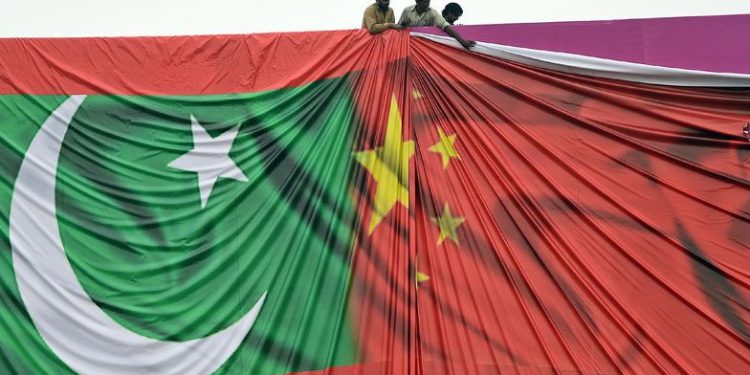In a disconcerting development that could pose a serious threat to India’s strategic interests, Afghanistan has decided to join the China-Pakistan Economic Corridor (CPEC) project. The foreign ministers of China, Pakistan and Afghanistan announced this at Beijing last week as part of broader efforts to boost “trilateral” cooperation. India has been opposing the $62 billion CPEC project because it violates the country’s sovereignty and territorial integrity by passing through Pakistan-occupied Kashmir (PoK). Now, the westward expansion of the CPEC could have grave geopolitical consequences for India, especially in the wake of the recent military confrontation with Pakistan.
The trilateral meeting took place against the backdrop of Islamabad’s ongoing criticism of the interim Taliban government for not taking action against militant groups based in Afghanistan that are waging war against Pakistan. Islamabad has consistently condemned the interim Taliban government for failing to take action against the Tehreek-e-Taliban Pakistan and the Balochistan Liberation Army, which it alleges are fighting for the independence of Balochistan. For an extended period, the three countries maintained a trilateral foreign ministers’ mechanism, which has not met recently due to increasing tensions between Islamabad and Kabul over Pakistan’s forcible repatriation of thousands of Afghan refugees.
Also Read: Indus Treaty will remain in abeyance until Pakistan abjures support for cross-border terrorism: MEA
Now, in the aftermath of the Indo-Pak conflict, China’s efforts to bring Pakistan and Afghanistan closer to its sphere of influence could pose several challenges for New Delhi.
The CPEC is Beijing’s ambitious initiative designed to link China’s Xinjiang province with the Gwadar Port in Pakistan’s restive Balochistan province through a network of roads, railways, and energy projects. Spanning 3,000 kilometres, this connectivity project is seen by China as a way to boost its “all-weather friend” Pakistan’s struggling economy while providing Beijing with direct access to the Arabian Sea. However, Beijing’s investment in infrastructure in PoK and Balochistan raises concerns for India, as it may enhance military mobility for both Pakistan and China in the region. Additionally, New Delhi worries that the CPEC could undermine its own regional connectivity efforts, such as the Chabahar port in Iran, by establishing alternative trade routes that exclude India. Another significant concern for New Delhi is the potential for Pakistan to use Afghan territory to conduct anti-India operations, given that Afghanistan has previously harboured terrorists from groups like the Jaish-e-Mohammed and the Lashkar-e-Taiba. In this context, it is pertinent to note that following India’s airstrikes on Pakistan in response to the Pahalgam terror attack, some terrorist groups in Afghanistan, especially the Al Qaeda in the Indian Subcontinent, issued a statement condemning the airstrikes as an “act of aggression” and vowed to launch a “jihad” against India.
All said and done, Afghanistan joining the China-Pakistan axis is yet another failure of India’s foreign policy establishment. This is true especially if seen in the context of India having invested over $3 billion in Afghanistan, primarily in infrastructure and other development projects. Not long ago, India had good ties with most of its neighbours, with the exception of Pakistan of course. However, something has gone wrong with our diplomacy that China has been successful in winning over one after another of India’s neighbours – Nepal, Bangladesh, Sri Lanka and Myanmar – over the last decade or so.






































